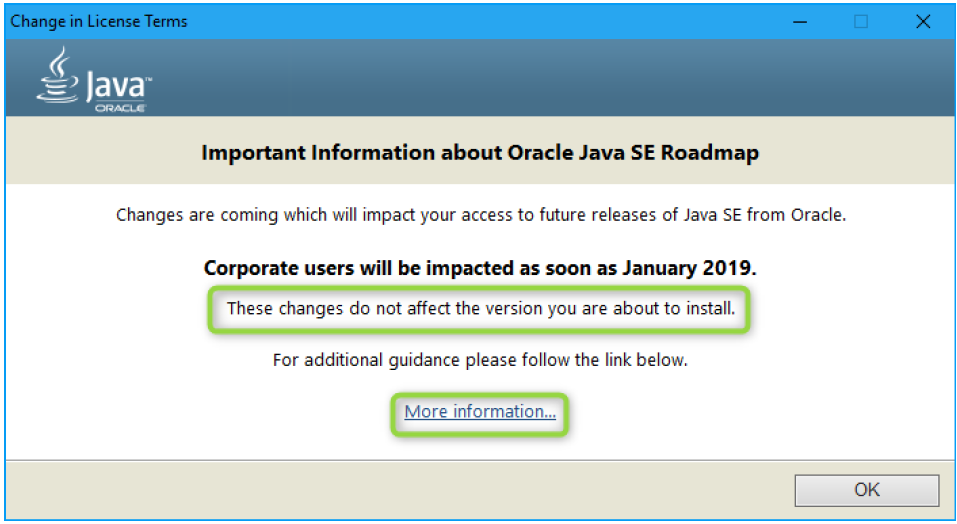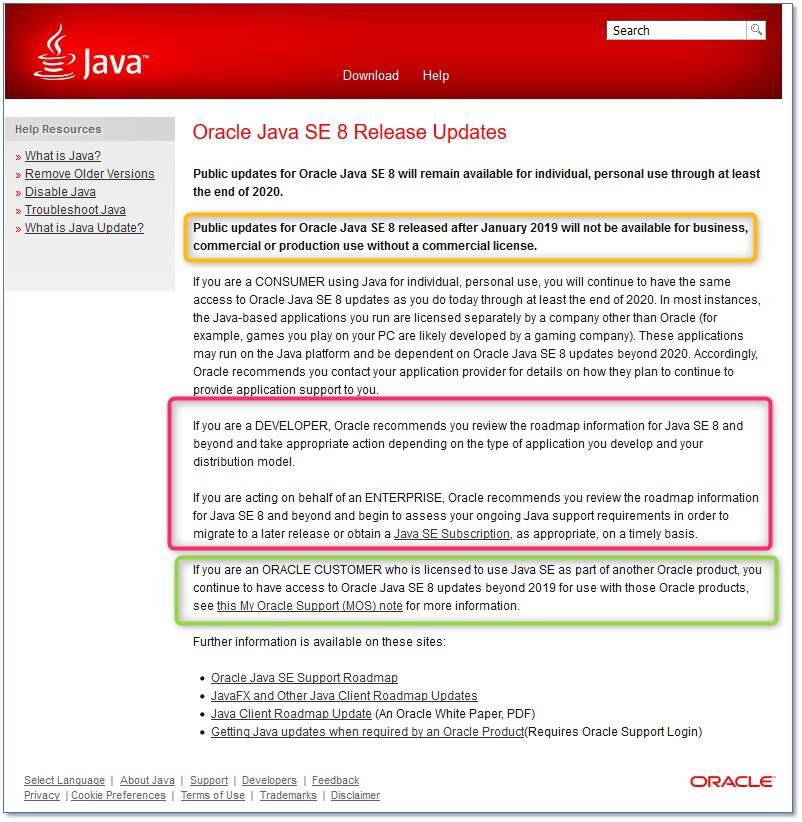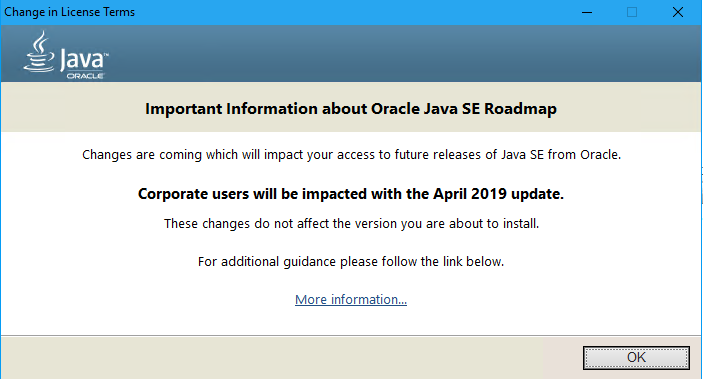You may have heard or are aware that Oracle have decided to change maintenance terms for all commercial products integrating Java 8 JRE/JDK in their delivery, which is the case for some Enterprise Management components.
The purpose of this blog is to answer some questions you might have related to this change and their affects on Sage Enterprise management.
An Oracle announcement states that customers will have to pay maintenance fees to get new releases starting January 2019. This might become an issue for our customers even if the change has been postponed to April 2019.
NOTE: The recent January 2019 update, 8u201/202, is not concerned by this for now.
Q1 – What is the risk of not updating Java components?
The main risk is the exposure to security issues. It is critical to get a fix to avoid potential security issues when, for any reason, a security threat is detected in a specific version of JDK/JRE. That is especially critical if the component is connected to external servers.
The second issue is the unavailability of old Java runtimes on the latest technical platforms (Windows, Linux…)
Q2 – What are the components of Enterprise Management impacted?
Three components currently use Java technology:
- The java web server, used as the V6 Web client and for legacy ADC terminals (used mainly for stock transactions in Enterprise Management), and to serve incoming SOAP Web Services in releases prior to Version 9 and in EM Warehousing (Geode).
- The JavaBridge server used for SOAP outgoing Web Services. (Note: We encourage the use of Node.js JavaScript integrations with the native REST Web Services, rather than the JavaBridge.)
- The Print Server (Report Server) installation utility (EZpack). This component runs during configuration, is never exposed to external connections and is least likely to be affected by a security threat.
- The Elastic Search engine is also based on Java technology.
Q3 – What happens to existing customers and current versions?
The following message is displayed when installing the latest 2018 Java version delivered (8u191):
That means no fee is due for existing products unless you have to update.
There are additional details on the Oracle site:
According to the above statements, any fix or new release delivered after January 2019 will be subject to the new licensing conditions.
Oracle has postponed this to April 2019, as indicated in the following splash screen displayed when installing update 8u201/202:

Q4 – Is there an alternative to Oracle JDK/JRE?
Yes, there is. Java has been an open source project, and like many other open source projects several forks (alternative deliveries) have been published by open source communities and are maintained freely by the community (exactly like Free Office is a fork of Open Office).
The open source alternative to Java is OpenJDK, with the Zulu distribution (initially the result of a common work of Microsoft and Azul Corp). Many big companies (notably IBM, Apple, SAP) are contributing to that project, which gives us a strong assessment on the durability and evolution of that version.
Q5 – When will this be available?
Sage has already tested the different components on both Linux and Windows Server with the Zulu 8u192 distribution, and the tests were successful.
We are working to deliver a new release of the legacy Web server and of the JavaBridge, usable with all legacy solutions and based on that OpenJDK component. We expect to deliver this before the end of Q1, 2019.
The same work is in progress for the Print Server; The next release of the Print Server installer, also expected to be delivered in the same time frame, will also use OpenJDK.
Concerning Elastic Search, the official documentation claims that both Java 8 and OpenJDK are supported, and the tests we have done are successful.
Q6 – Any other question?
Contact your local support

